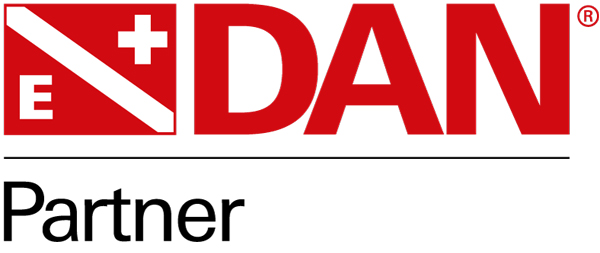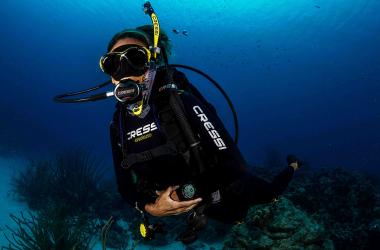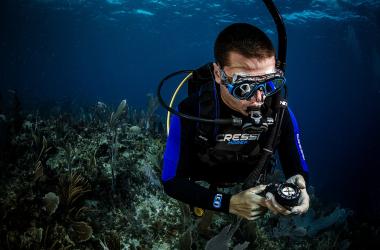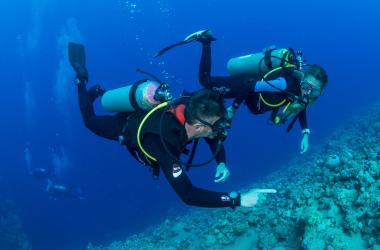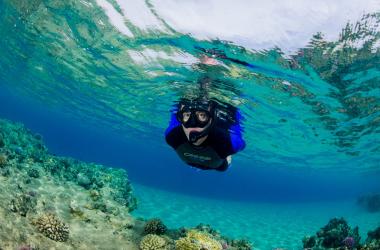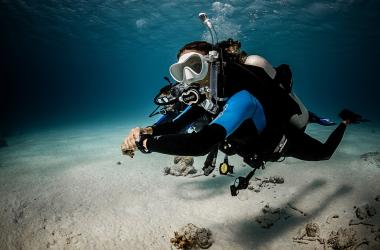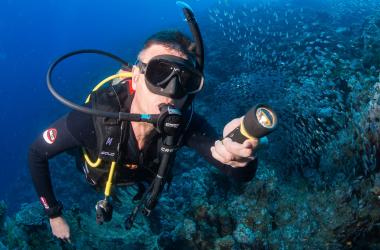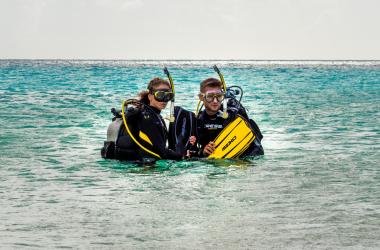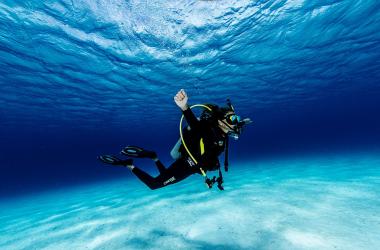Info for Certified Divers
Please read some useful information about joining our guided dives as a certified Diver.
1. Certifications Validity: in order to participate on a Guided Dive with H2O Diving Centre you need to provide a Diving Certificate or a valid proof of it.
Diving Cards are great and digital cards even better! Additionally, we can accept a photo of the detailed side of the card (an idea solution for those who forgot their card at home) and of course an official email from the agency (PADI/SSI…) stating your certification and level or a copy from the agency website/status.
We will do our best to find you via diver verification search machines if your agency has one available.
Worn out card can be a problem and might not be accepted so it is recommended to replace your old diving card with a new one if you want to go diving.
Cards without international validity: in the 90s and 2000s there were a lot of local diving agencies who were operating under the wing of CMAS International but never managed to get ISO (especially once they got expelled from CMAS). Other cards have been issued from local clubs and of course there are also cards for Armed Forces divers, Firefighters etc, which - unfortunately - have no official validity.
If you have a card like this, please contact us in advance to work on a solution.
Last but not least, emails, digital proofs, etc of uncompleted courses will not be accepted as proof of certification.
For a more detailed consultation, contact H2O Front desk.
2. Diving with your own equipment: having your own gear is a good idea in a world where you don’t know what you will find on the next dive trip.
This is understood and respected but here is what you need to know in order to use your gear within our centre’s operations.
Any equipment failure during guided dives can cause problems regarding the parameters and safety of the dive which is the responsibility of the organizer (H2O Team). In order to minimize/avoid this event, all LSS (Life support Systems) equipment that will be used (including our equipment) must be fully serviced and maintained. A written Service Certificate will be asked from the leader and, on your permission, we’ll run a quick inspection on basic functions.
In case your personal gear shows signs of malfunction, another item will be provided from our team free of charge until the problem with yours is solved.
Such problems could be: stack buttons, loose drain valves, big leaks etc. (for BCs), worn hoses, leaks, dead SPGs etc. (For Regulators).
3. Medical Questionnaires and Medical Certificates: During the paperwork phase, divers have to complete an application and a Medical Questionnaire. In this questionnaire divers have to answer questions regarding their physical and mental health – two basic factors for the well being and safety of the diver in the sea.
The Questionnaire is designed by the medical team of each organization (RSTC) and it has a legal validity. We would like to clarify that we are only the administrators of this document, we do not have the medical knowledge or the authority to judge and take decisions about who is ok and who is not.
The Questionnaire has clear instructions of use that you are advised to read carefully.
Ideally, any diver should opt for an annual medical check up to ensure (first for ourselves, then for any required document) that we are ok and fit. Diving in the sea is something that requires fitness!
4. Authority: you chose us to organize and lead your dives! Now let us do it for you.
As a certified diver you must understand and accept the authority or our dive leaders to take decisions regarding the well being of the divers and of course the fun level.
Decisions regarding the number of divers and formation of the group, dive site and teams, parameters of the dive etc.
This authority must be respected. Remember that the Dive leader is there to make it a wonderful diving day for you.



